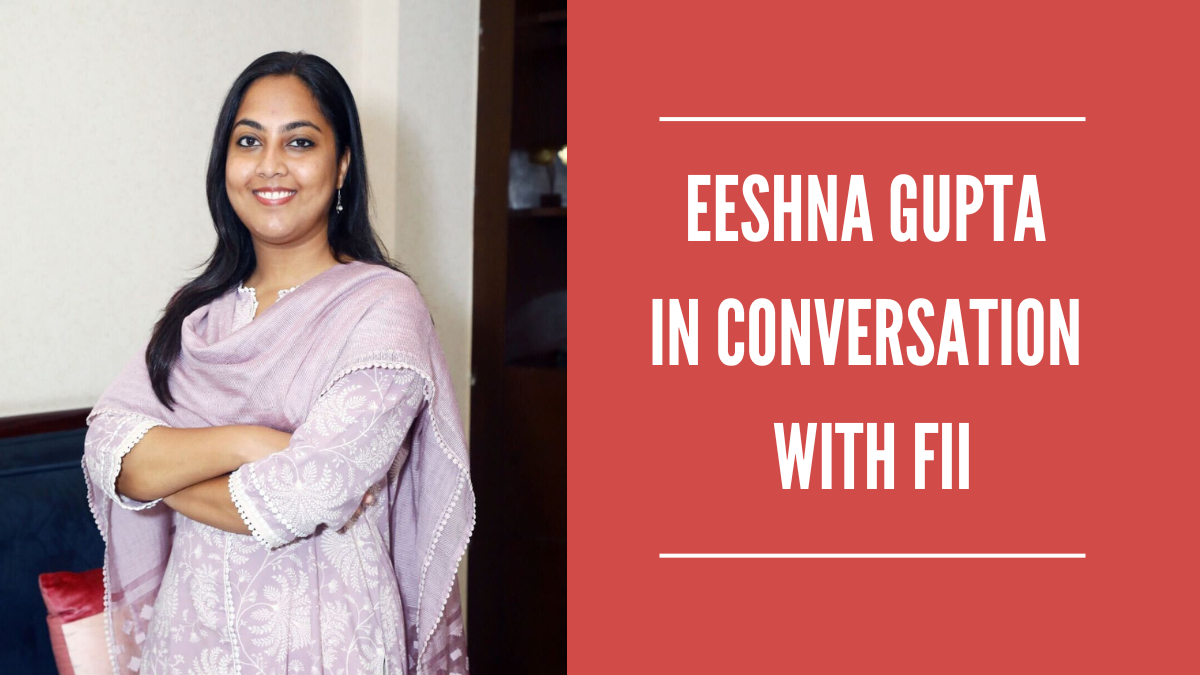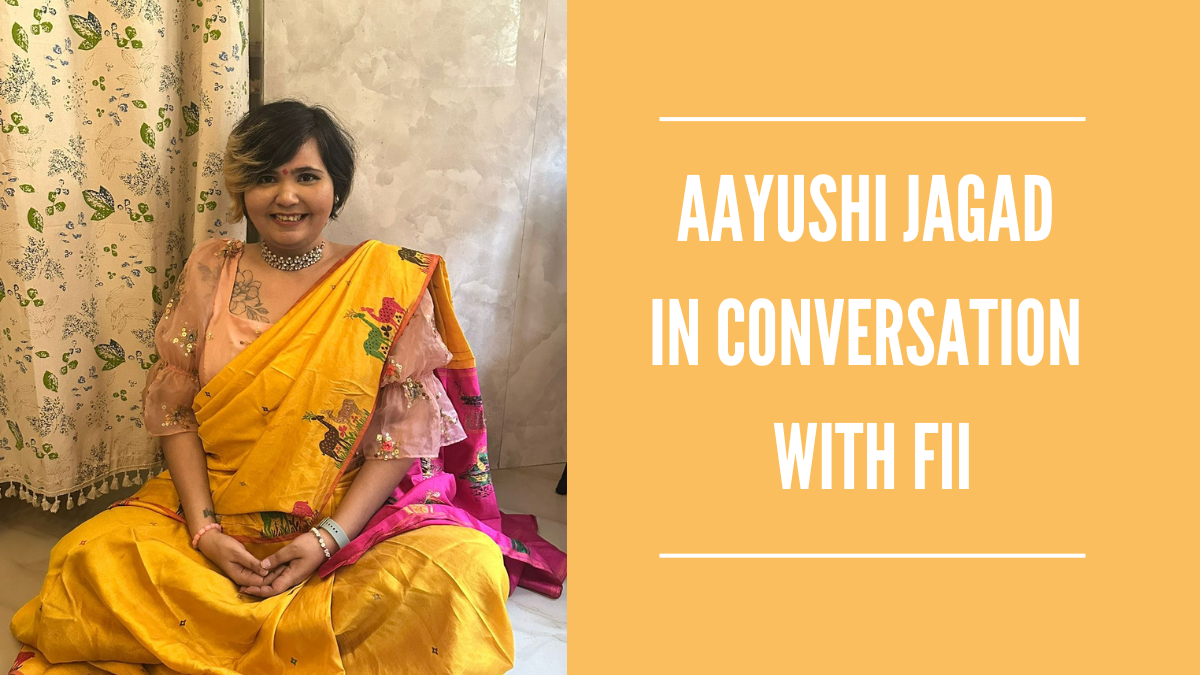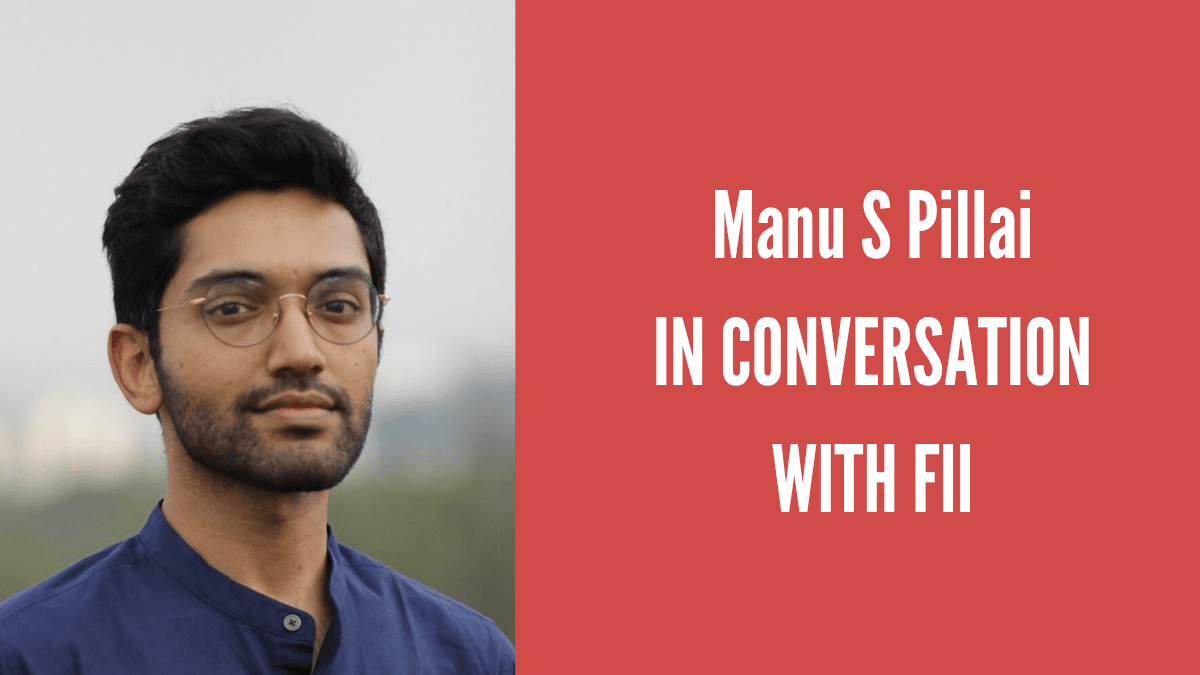Music as a form of expression has never been neutral. Rather, it has always been a culmination of humanity’s lived experiences, with each note and melody intended to evoke emotions—of love and division, of hatred and unity. Yet, we often witness the prevalence of hegemony in music, where certain dominant groups or musical forms claim a monopoly over what is considered legitimate or “good” music. Male dominance is particularly evident in genres such as rock. However, we have also seen rebellions in the form of alternative rock bands that seek to reclaim musical spaces and assert the right to create music. In India too, various musical groups have challenged traditionally male-dominated and religious spaces by invoking music’s universal and inclusive nature.
Sonam Kalra is one such musician. With multiple awards and accolades to her name, Sonam Kalra has dedicated her life to creating a universal and inclusive space through her music. Her brainchild ‘The Sufi Gospel Project’ has been an endeavor to create a religion-free space where diverse genres are blended together to produce universal music. Other albums such as ‘Partition: The Stories of Separation’ have portrayed the memories of shared grief and trauma.
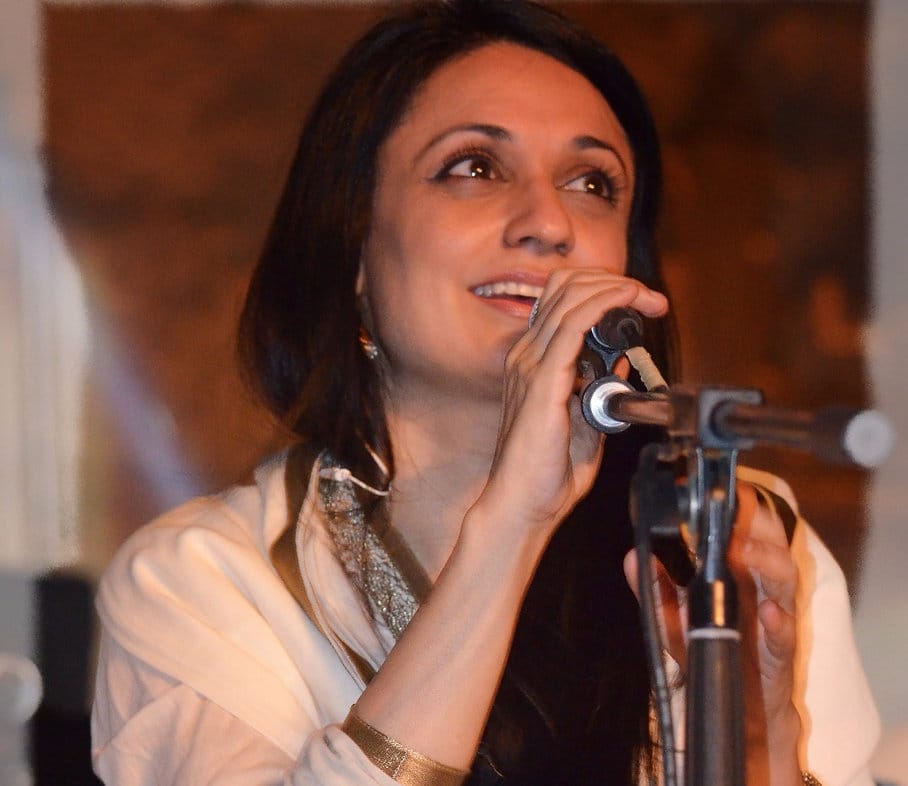
In this interview with FII, Kalra explains the philosophy that has inspired her music as well as her journey to reclaim a traditionally male-dominated space.
FII: What first drew you to music as a form of self-expression and spirituality? Could you share how music became your personal language for introspection and emotional connection?
Sonam Kalra: Music has always had a very special place in my heart. It was never just something I just did—it was always something I felt. From an early age, I was drawn to its power to convey one’s deepest emotions. My journey with music began as a child—for as long as I can remember, there has always been music in our house. I remember sitting on my mother’s lap listening to Begum Akhtar, in a chair that I actually still have. My mother made sure I was exposed to all kinds of music and diverse genres—from Indian classical to Jazz, Gospel, and Western classical music. And I think it was my mother’s deep love for music that was transferred to me. I still remember her face when she listened to music—there was a certain calm, a surrender from deep within—so much emotion that would be apparent on her face when she listened to music, and I think that really impacted me in the best possible way. That early exposure created a natural pull toward music. I trained in both Hindustani classical and Western traditions, from Indian classical music and ghazals to gospel, jazz, rock, pop, and Western classical music. This exposure to so many different sounds and traditions planted the seed for what would later become my voice as an artist.
Over time, music became my language for introspection. It was how I processed joy, sorrow, grief, hope. When words failed, music spoke. Especially during personal loss—like the passing of my mother—music was my sanctuary. It helped me make sense of pain and transform it into something meaningful. That alchemy is what makes music so powerful: it doesn’t just reflect your inner world; it reshapes it.
FII: Can you share a few examples of your own songs that embody this vision of unity and peace through Sufi music?
Sonam Kalra: The music that I create within ‘The Sufi Gospel Project’ blends together the many voices of faith, through poetry, prayer, and music to create one universal voice of faith.
My journey with music began as a child—for as long as I can remember, there has always been music in our house. I remember sitting on my mother’s lap listening to Begum Akhtar.
Traditional Western gospels meld with Hindustani classical music, and Indian spiritual texts are enriched by elements of Western poetry to create a sound that touches every soul. To put forth the idea that no matter what the language of the lyrics or the ethnicity of the sounds is, there is but one language—the language of faith. Creating a musical landscape where the words of Sufi Master Amir Khusrau blend with the plaintive strains of the age-old Gospel hymn, ‘Amazing Grace’, where Sufi poet Kabir Das’s sagacity shares the stage with the ever-moving verses of the hymn, ‘Abide with Me’. And where the playful wisdom of Baba Bulleh Shah’s philosophy is brought to life amidst English texts and Irish music whilst Guru Nanak’s words resonate with the harmonies of world folk sounds. Shedding the garb of traditional Sufi and gospel interpretations and finding common ground to create a more all-inclusive definition of oneness that also embraces Bhakti, contemporary poetry, and more. Proving that many different hallelujahs can exist in harmony. And that whilst each of us has our own truth and that no matter where you find that truth—in a temple, a shrine, a church, or a mosque, the most important fact is, that each truth is just as valid.
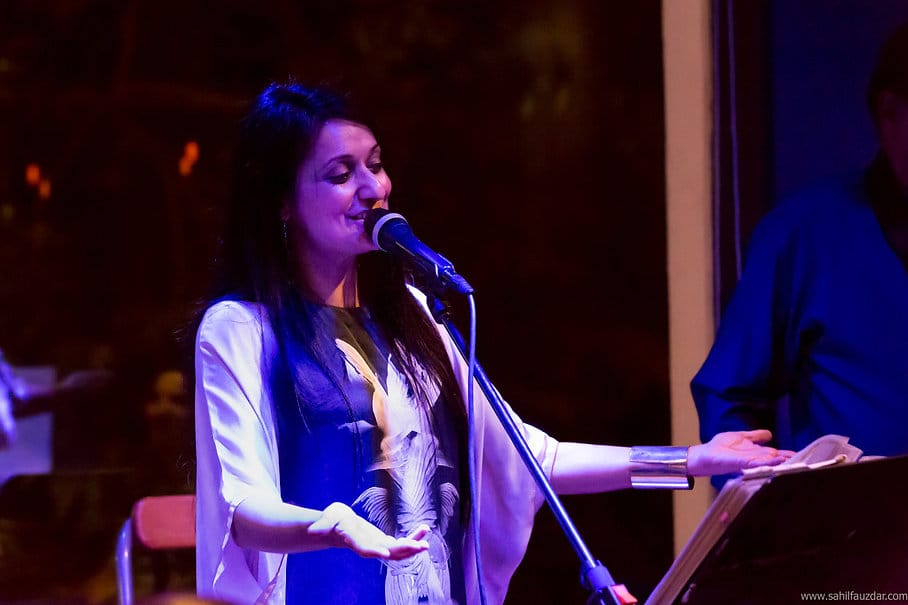
Several pieces from ‘The Sufi Gospel Project’ embody this vision. When I created “Hallelujah – Allah Hoo” I brought ‘Man Kunto Maula’ and ‘Hallelujah’ together to put forth the message that many different calls to God, many hallelujahs can and must exist in harmony. My version of the hymn, ‘Abide With Me’, is another example—I blend this Christian hymn with the words of Kabir Das—‘Moko Kahan Dhunde re Bandey Main to tere paas mein’ (Why do you look for me outside when I am in you, and in every breath of every man). This shows the seamless news of faith. Most of my pieces speak of divine love that dissolves all boundaries. Even my original composition of Baba Bulleh Shah’s poetry “Alfat” says that the divine is in every being and I bow to this divinity in each being.
FII: What was the inspiration behind the Sufi Gospel Project? What were your motivations behind creating socially and politically powerful pieces like ‘Hum dekhenge’ and ‘Bol’?
Sonam Kalra: The idea for ‘The Sufi Gospel Project’ was born about 14 years ago when I was asked to sing gospel music at the Urs—the birth celebration—of the Sufi saint Hazrat Inayat Khan, in Nizamuddin, New Delhi Before that, even though my training had been in Indian classical music, I found myself deeply drawn to gospel music—especially the hymn ‘Amazing Grace’—because I was going through a very difficult time, with my mother battling terminal cancer. That hymn gave me strength and solace. I decided to pursue this inner call, found a teacher in Singapore, and began learning gospel music. Soon after, I started getting invited to perform gospel music at festivals and concerts in India.
During that period, almost everyone would ask me after a performance, “Why does a Sikh girl sing gospel music?”—or as someone once put it, “Christian bhajans.” My answer was always the same: “God has no religion, and religion is not God. I should be free to pray to God in whichever way I feel.”
I wanted to create a soundscape that proves that, despite different languages, beliefs, and styles, there is ultimately just one voice—the voice of faith. One truth.
Two years later, when I was invited to sing gospel music again at the Urs of Hazrat Inayat Khan, it felt like a true turning point. The idea of a Sikh girl singing Christian music in an Islamic space—it was so powerful. It felt like the universe was speaking to me. So I listened to that voice within and created something I hoped would be worthy of the moment—a project that transcended boundaries and brought people together through the shared experience of music and prayer. And so ‘The Sufi Gospel Project’ was born—in the hope of uniting faiths and creating a new, more inclusive definition of Sufism. It was my way of questioning pre-conceived notions and using music to convey the true essence of Sufism: acceptance, equality, and oneness.
The project blends the many voices of faith—through poetry, prayer, and music—into one universal voice of faith. Traditional Western gospel meets Hindustani classical music. Indian spiritual texts are enriched with elements of Western poetry. The words of Amir Khusrau blend with the plaintive strains of ‘Amazing Grace’. Kabir Das’s wisdom finds harmony with ‘Abide With Me’. The playful philosophy of Bulleh Shah dances with Irish and English folk music. And the teachings of Guru Nanak resonate in contemporary global sounds.
Through this, I wanted to create a soundscape that proves that, despite different languages, beliefs, and styles, there is ultimately just one voice—the voice of faith. One truth. Whether found in a temple, a shrine, a church, or a mosque—that truth is valid and worthy. Sufism, simply put, is the acceptance of all humanity as equal—and I believe that’s a message the world needs now more than ever.
‘Hum Dekhenge’ and ‘Bol’ were born out of a deep and unwavering belief in the power of equality and inclusion. Bol, based on the poetry of Faiz Ahmed Faiz, holds a very special place in my heart. Faiz Sahab’s Kalaam speaks of the voice as our most powerful tool—one that must be used to speak out against injustice, to give voice to the voiceless, and to stand up for what is right.
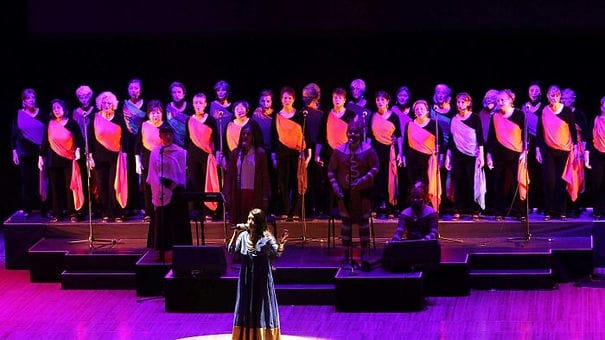
To this, I added a refrain: “Bolo, ek awaaz hain hum.” I’ve always believed that while the individual voice is powerful, the collective voice is unstoppable. And when we rise together as one humanity, we truly can move mountains. Bol became an anthem—a rallying call for people to come together and spark change through unity. Hum Dekhenge, on the other hand, was a more introspective, quiet plea for peace. I chose to blend Faiz Sahab’s iconic poem Hum Dekhenge with Rabindranath Tagore’s timeless lines ‘Where the mind is without fear’, weaving together two great legacies in the hope of envisioning a more equitable world—one grounded in democracy, secularism, and justice.
Musically, I experimented. Instead of traditional instrumental interludes, I sang Faiz’s verses, and between them, I placed Tagore’s poetry as spoken word—creating a conversation between two powerful visions of freedom and hope. At the heart of it all, my motivation remains the same: to use music as a mirror, as a bridge, and as a catalyst—for compassion, for courage, and for change.
FII: Your performance on Partition: the stories of separation, has resonated deeply with many audiences across the world. What do you believe is the role of history—and particularly collective trauma—in the creation of meaningful music?
Sonam Kalra: History, especially when shaped by trauma, carries immense emotional weight—and music allows us to hold that weight with grace. ‘Partition: Stories of Separation’ is an experiential performance I created to honor the legacies of the survivors of the 1947 Partition—it’s about memory, pain, longing, and ultimately, hope. When we engage with collective trauma through music, we humanize the statistics. We remember the names, the faces, the stories. That remembrance is essential—not just for healing, but for learning. Music gives voice to what was silenced and, in doing so, becomes a keeper of history.
Oral history often tells us more of the truth than written history ever can. It captures the texture of lived experience—the silences, the tears, the resilience.
It is my way of honoring the legacy of what transpired during the Partition. By remembering and paying tribute to the strength of those who lived through it, their memories, and their stories—many of which live on not in textbooks, but in the oral histories passed down across generations. Oral history often tells us more of the truth than written history ever can. It captures the texture of lived experience—the silences, the tears, the resilience. These personal narratives hold emotional truths that historical accounts sometimes miss or choose not to see. Through ‘Stories of Separation’, I wanted to create a space where those voices could be heard, where shared histories could be acknowledged, and where music could act as a bridge—for remembrance, for dialogue, and above all, for peace. Music, much like oral storytelling, becomes an archive of the soul—a keeper of memory, a witness to both suffering and survival.
FII: Traditionally, Sufi music has been perceived as a male-dominated space. In this context, how do you believe sufi music can be used to create moving and empowering narratives for women?
Sonam Kalra: Sufi thought, at its heart, is about the dissolution of ego and identity. But historically, the performance of Sufi music has largely excluded women’s voices. I believe that reclaiming this space is not only necessary—it’s transformative. By embodying and interpreting Sufi texts as a woman, I try to bring forth a new kind of narrative—one that honors feminine divinity, intuition, resilience, and spiritual longing. It challenges existing norms while remaining rooted in the authenticity of the form. When a woman sings of surrender or divine love, she isn’t just echoing centuries-old poetry—she’s reshaping it, infusing it with lived experience. In that act, she is reclaiming space not just on stage, but in the larger spiritual conversation.
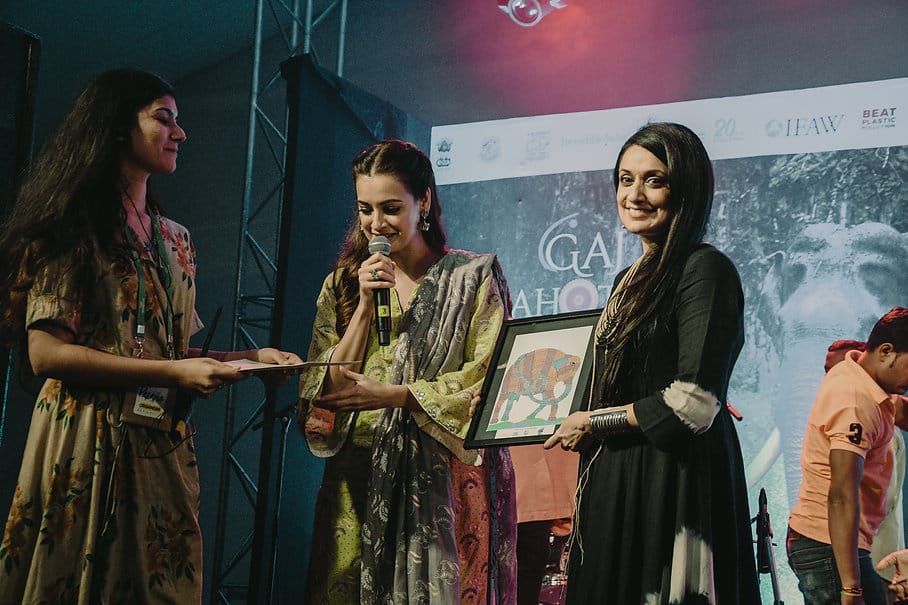
Interestingly also, in classical Sufi poetry, several male poets wrote in the feminine voice, including Hazrat Amir Khusrau and Baba Bulleh Shah to name a few. When they did so, they were not merely employing a literary device—they were, in fact, stepping into the sacred avatar of the feminine. They believed that the deepest kind of divine love—the love that requires total surrender, ego-less devotion, and boundless vulnerability—could only be truly expressed through the heart of a woman. To them, the feminine was not weaker, but spiritually more expansive, more capable of dissolving boundaries between self and the divine. By writing as women, they were acknowledging that the female heart held a unique, almost mystical capacity for love that was vast, unguarded, and transcendent—qualities essential to the Sufi path of annihilation of the self in the beloved.
FII: What do you see as the role of music—and especially Indian musical traditions—in advancing feminist movements today? How can music serve as a form of resistance and reclaiming of public voice?
Sonam Kalra: Music is resistance. When a woman stands on stage and sings her truth, she is claiming space. Indian musical traditions, rich as they are, have often been gatekept by patriarchy. But there is also deep power in these traditions—power that women are now reclaiming. There is new credit being given to courtesans and their legacy. From folk songs sung in protest, to classical compositions reinterpreted with feminist intent, to the poetry of women mystics like Lal Ded and even Mirabai—there is a deep, often overlooked lineage of feminist expression in our musical heritage. By amplifying these voices, by creating new ones, we not only resist exclusion—we rewrite the story.
Feminism, at its heart, is about equity, dignity, and the right to be heard. In that sense, music becomes both a mirror and a megaphone. Indian music, especially classical and folk traditions, holds stories of women—some forgotten, some silenced, and some still fighting to be acknowledged. When we sing those stories today, or reinterpret ragas and qawwalis through a feminist lens, we’re not just preserving culture—we’re using it as a vehicle for protest and healing.
Take, for example, the Sufi tradition. It’s rooted in love, transcendence, and unity. But it’s also a space where gender boundaries blur, and where the divine feminine has always existed—sometimes subtly, sometimes defiantly. By singing Sufi poetry that celebrates female mystics or reclaims the space of longing and devotion from a woman’s perspective, I feel like I am asserting that our voices, too, belong in that narrative. Music also challenges who gets to occupy public space. Historically, many women were discouraged—or even forbidden—from performing publicly. To sing boldly, to take the mic, is to reclaim that space. Every time a woman steps on stage, sings in a public square, or reclaims a traditionally male-dominated genre, she’s performing resistance.
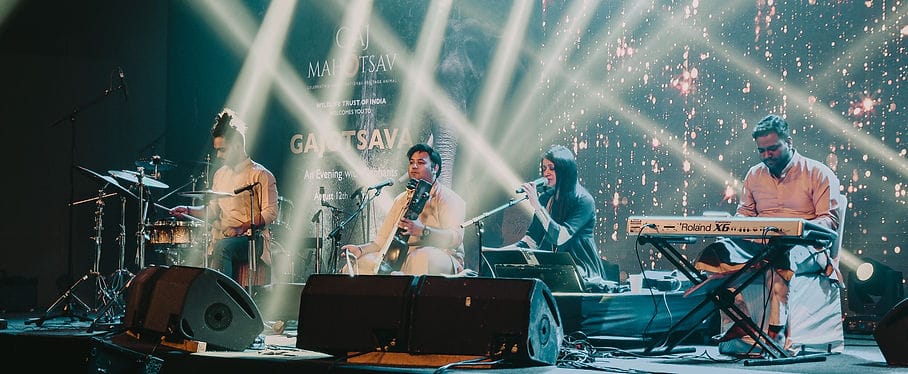
In my own work with ‘The Sufi Gospel Project’, I’ve tried to create a space where identities can coexist—across gender, faith, and tradition. That act of inclusivity is itself political. It says: your story matters. Your voice matters. And your truth can be sung into being.
So yes, music is resistance. It is sanctuary. And most importantly, it is possibility.
FII: As a woman at the forefront of the Indian music scene, what challenges have you faced in terms of access and opportunities? Do you believe structural exclusion still prevents many women from flourishing in the music industry?
The music industry in India, like many others, is slowly evolving—but it still has a long way to go in terms of gender equity. From being underestimated to being tokenized, I’ve experienced how patriarchal systems operate—sometimes subtly, sometimes overtly. Access to opportunities, production spaces, and decision-making roles remains uneven.
The conversation has begun, and every woman who claims her voice—on stage or off—is shifting the narrative.
While we see more women fronting performances today than a decade ago, there’s a noticeable gap in technical and decision-making roles—sound engineers, producers, label heads. It’s not just about representation; it’s about creating safe, equitable, and respectful spaces for women to work in and express themselves.
I’m hopeful, though. The conversation has begun, and every woman who claims her voice—on stage or off—is shifting the narrative. I’m also hopeful for a stronger sisterhood to emerge—more collaborative, less competitive—where more and more women lift each other up, share knowledge, and co-create. Change is happening—it just needs more momentum and intention. And we all have a role to play in that.
FII: What are your artistic plans for the future? Are there any new musical styles or collaborations you’re excited to explore?
People have called me “a musician with a message”, and that means a lot to me. I truly believe each of us has a purpose on this earth. Maybe mine is to use the gift of music to change mindsets, to speak out against injustice, to promote inclusion, and—hopefully—in my own small way, to make a difference. This journey has been incredible. I’ve been able to share my music across 30 countries. It’s been deeply humbling to see how the message resonates with people of all faiths, across geographies and generations.
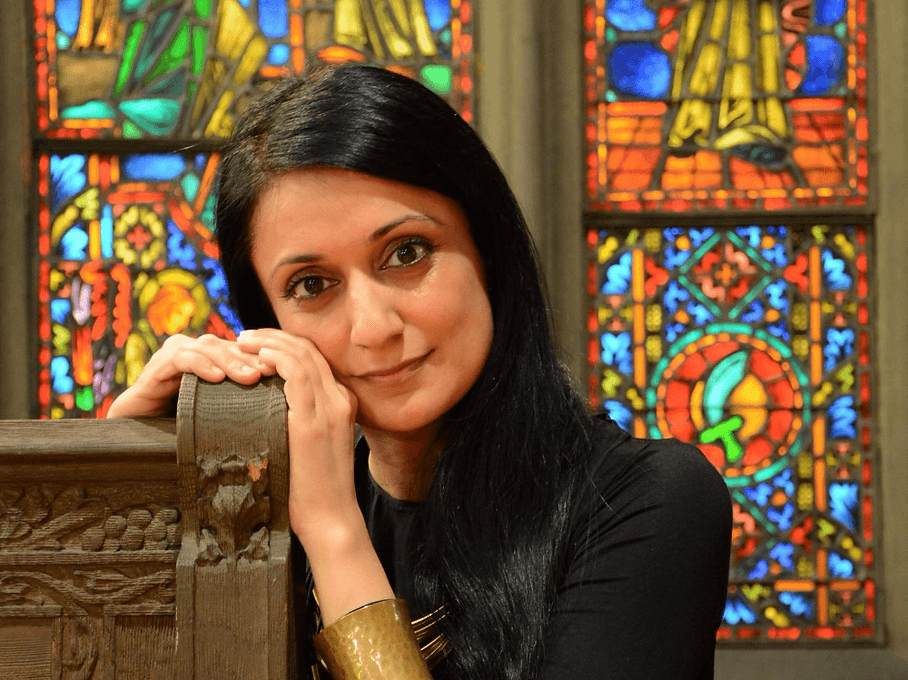
I’ve had the honour of performing at iconic venues and festivals like Muzaffar Ali’s Jahan-e-Khusrau, the Sama’a Sufi Festival in Egypt, the Sydney Opera House, the Royal Opera House in Cairo, the Kennedy Center in Washington, and the Nehru Centre in London. I’ve also had the privilege of sharing the stage with artists I deeply admire, such as Abida Parveen ji and Sir Bob Geldof. I feel truly blessed. ‘The Sufi Gospel Project’ was born from a desire to find common ground. At a time when the world was becoming increasingly divided along lines of religion, nationality, gender, I wanted to create music that reminded people of their shared humanity. Of reminding them that we are all children of the same humanity.
To be of Sufi heart means to accept all beings as equal, gospel means the truth—so through my music I wanted to talk of this acceptance of all truths by blending the many voices of faith to create one voice. I’m going to be releasing a song next month in which I have written and composed. I’ve collaborated with a female visual artist from Iran who has done the most beautiful graphics, and we have created an animated video. It was quite incredible to work with her because we managed to transcend the barriers of geography and language and create this very visually and musically moving piece. The song speaks of inclusion and the hope for a world without labels and borders. I’m really looking forward to that release. It’s called ‘Chaleya Momin- The Search’. There is another collaboration with a female Rajasthani musician which comes out later this year. This seems to mystically be the year for me to work with more women, more feminine energy perhaps!
There is also another folk song I will be releasing soon and two Sufi pieces as well. The journey is ongoing, and I’m always looking for new ways to push the boundaries of sound, emotion, and meaning.
About the author(s)
Sohalika Shrivastava is a 3rd year student at IIT Madras out and about to carve a niche for herself. In her free time she likes to read about and learn animal fact

